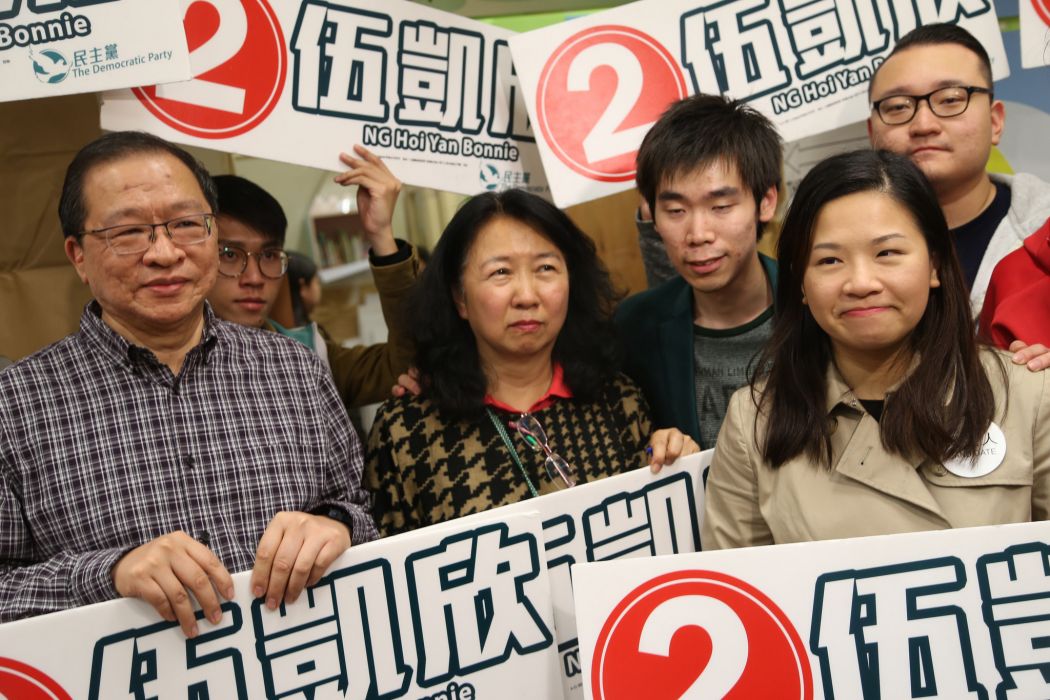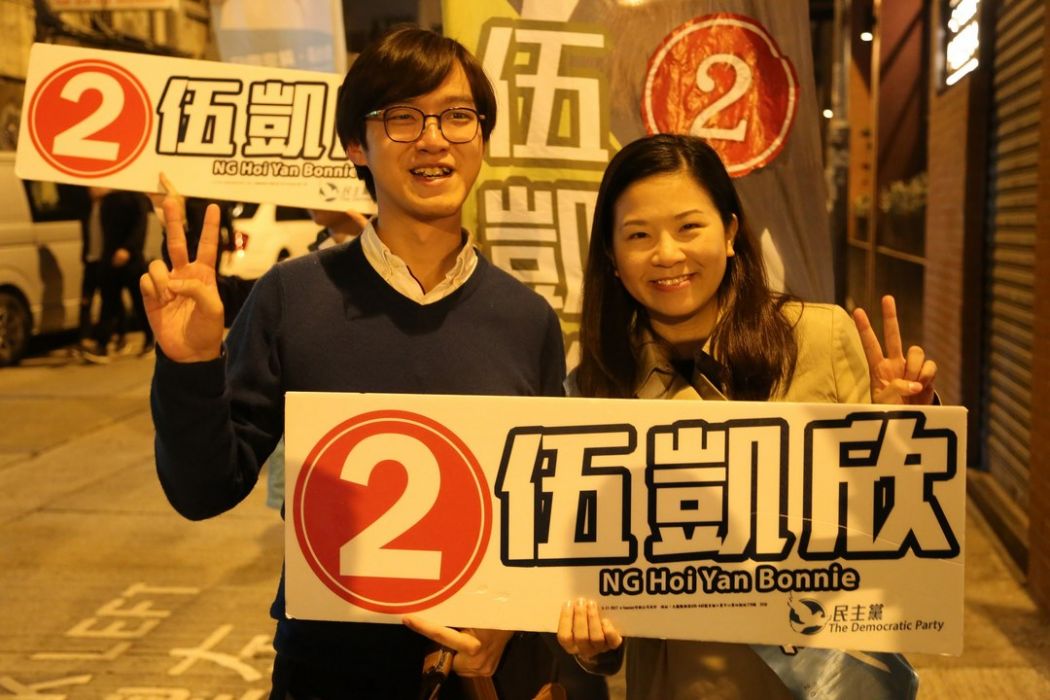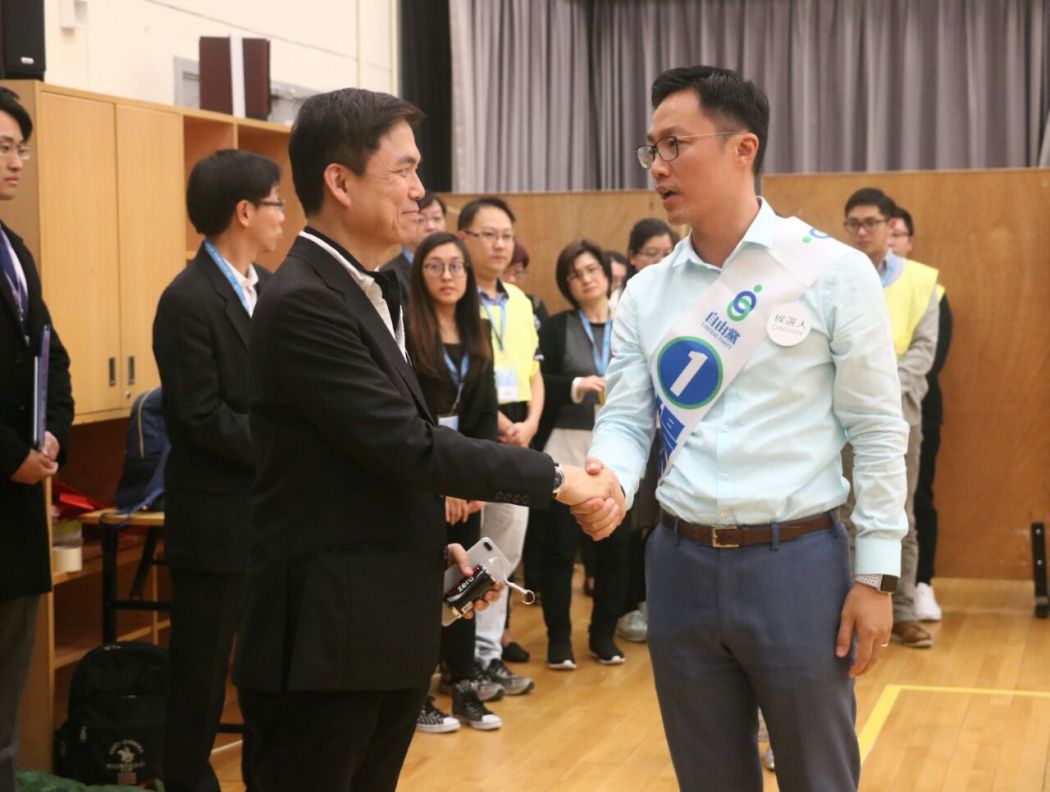The pro-democracy camp enjoyed a mini-victory on Sunday, regaining a District Council seat from the pro-Beijing camp after six years. Democrats, however, failed to take The Peak – though there was a drop in the number of voters in the pro-Beijing stronghold.
In the Tung Wah constituency of Sheung Wan, the Democratic Party’s Bonnie Ng won with 1,034 votes, beating her main rival, primary school principal Ambrose Lui who gained 909 votes. Former Labour Party member Olivia Lau, got 20 votes.
In The Peak constituency, the Liberal Party’s Jeremy Young won with 1,378 votes, beating hedge fund manager and pro-democracy activist Edward Chin, who gained 394 votes.

The by-elections were caused by the resignations of their former pro-Beijing district councillors Kathy Siu and Joseph Chan, who joined the government in the middle of their terms.
Each area has more than 5,000 voters. The turnout rates in Tung Wah and The Peak were 38.81 and 33.41 per cent respectively, lower than the 46 and 40.77 per cent recorded in the 2015 District Council election.

Tung Wah was held by Democratic Party’s Frederick Ho until 2011 when Kathy Siu, of the pro-Beijing Democratic Alliance for the Betterment and Progress of Hong Kong (DAB), took over. The Peak was once taken by Civic Party lawmaker Tanya Chan between 2008 and 2011, but was lost to the Liberal Party’s Joseph Chan in 2011.
Drop in votes
In the 2015 District Council election, Kathy Siu won 1,352 votes, beating Frederick Ho who gained 980 votes. Although Ambrose Lui declared as an independent candidate, he received support from numerous pro-Beijing figures. However, he received some 450 fewer votes when compared to Siu.

Tung Wah’s Bonnie Ng said that voters had focused more on candidates’ political views and efforts to serve the district, but she expected the race to be close: “I expected the difference to be around 100 votes, but it was difficult to tell who would win.”
Ng said: “The DAB did not field any candidates after [Siu] joined the government. The voters may think that the party has abandoned them. I can’t rule out that this was the reason some voters did not support a pro-Beijing candidate this time.”

But Lui said the result proved that he did not have the strong backing of political parties, and said he hoped his campaign would set an example for his students – to pursue what they believe in.
Olivia Lau denied her campaign was an an effort to snatch votes from Ng, saying that anyone with enough nominations could run.

In The Peak constituency, the pro-Beijing camp also saw fewer votes compared to 2015. Jeremy Young received almost 500 fewer votes when compared to party colleague Joseph Chan in 2015.
The pro-democracy camp received 77 more votes when compared to 2015.

Young, the political assistant to the education secretary between 2008 and 2012, said the drop was normal as turnout is usually lower in a by-election.
The by-elections were the first race after six democratically-elected lawmakers were disqualified by a court for their oaths of office.
Bonnie Ng said: “I hope the pro-democracy camp can continue to be united, and win back our six seats.” She also thanked conservationist Katty Law, who once considered running, for supporting her.

Barnabas Fung, the chair of the Electoral Affairs Commission, said it received 101 complaints during the election. A total of 49 were related to election ads, whilst 42 were related to campaigning.
